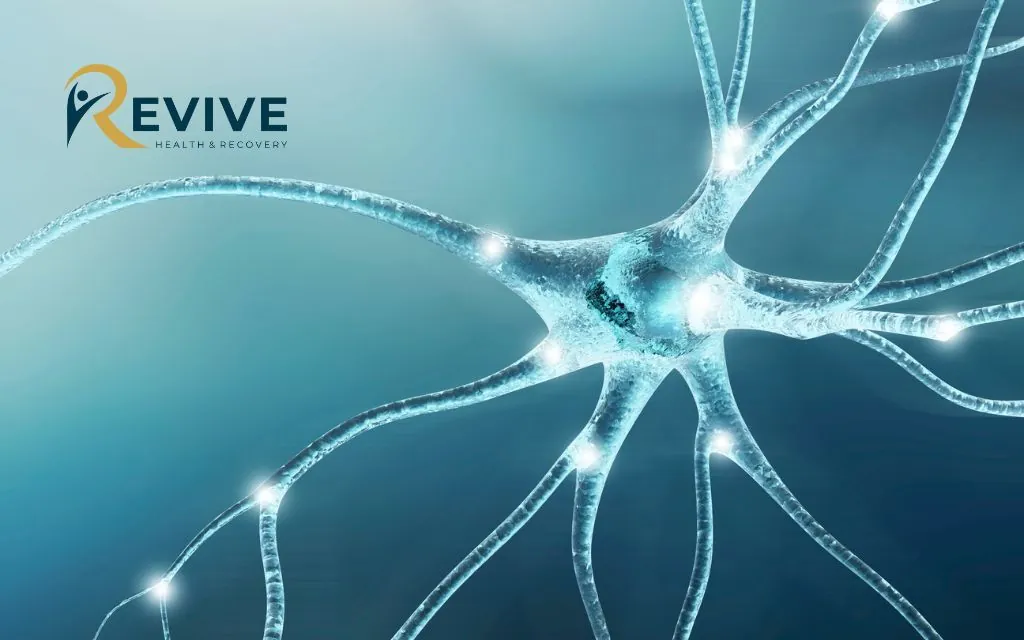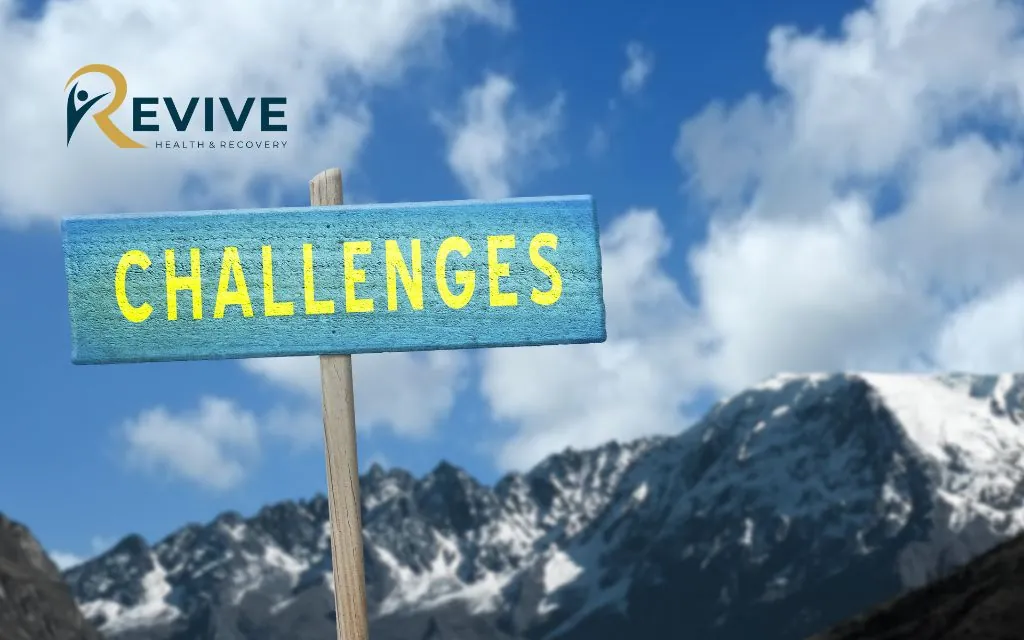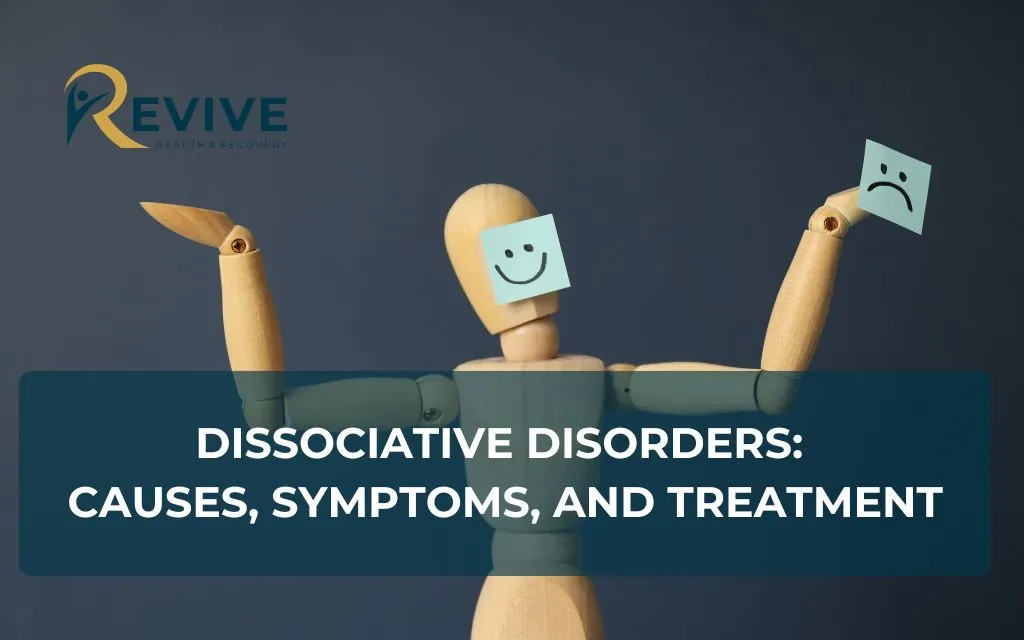Dissociative disorders are complex mental health conditions that go far beyond the occasional daydreaming or “zoning out” that everyone experiences. These conditions involve significant disruptions in memory, identity, consciousness, and perception that can profoundly impact daily functioning. For residents of Denver and throughout Colorado seeking help, understanding these disorders is the first step toward effective treatment and recovery.
What Are Dissociative Disorders? The Denver Perspective
Dissociative disorders involve an involuntary disconnection or detachment from reality, causing disruptions in how a person experiences their thoughts, feelings, surroundings, and sense of identity. While everyone dissociates occasionally (like when you drive home and don’t remember the journey), pathological dissociation is more severe and persistent, interfering with daily life functioning.
In Colorado, approximately 2% of the general population experiences dissociative disorders, with a higher prevalence among women. Denver’s mental health system has evolved to recognize these conditions through specialized trauma recovery programs that address dissociative symptoms throughout the metro area.
“Dissociation often serves as a protective mechanism against overwhelming trauma,” explains a trauma specialist at Revive Health Recovery in Denver. “Our Colorado patients frequently describe it as feeling detached from themselves or their surroundings, as if they’re watching their lives from a distance rather than living them.” Psychiatry.org
Colorado’s mental health system has become increasingly responsive to the needs of individuals with dissociative disorders, with Denver, in particular, offering a concentration of trauma-informed therapists specializing in these conditions. These specialists recognize that dissociation often arises as a coping mechanism for dealing with overwhelming experiences, especially childhood trauma.

The Three Main Types of Dissociative Disorders
According to the Diagnostic and Statistical Manual of Mental Disorders (DSM-5), there are three primary types of dissociative disorders, each with distinct characteristics:
- Dissociative Identity Disorder (DID) – Formerly known as Multiple Personality Disorder, DID is characterized by the presence of two or more distinct personality states or identities. People with DID experience gaps in memory and may feel as if different parts of themselves take control at different times. In Denver, DID is frequently misdiagnosed as schizophrenia, bipolar disorder, or borderline personality disorder, making specialized assessment crucial.
- Dissociative Amnesia – This involves significant memory gaps beyond normal forgetting, particularly around traumatic or stressful events. The person may be unable to recall important personal information or specific traumatic events. Some individuals experience “dissociative fugue,” where they suddenly travel away from home or work and cannot remember their past.
- Depersonalization/Derealization Disorder – This involves persistent or recurrent feelings of detachment from one’s body or mental processes (depersonalization) or a sense that the external world is unreal (derealization). While experiencing these symptoms, the person remains aware that this altered perception is not reality.
Denver-based specialists note that these conditions often overlap with other trauma-related disorders such as PTSD, anxiety, and depression, making comprehensive assessment essential for effective treatment planning.
Recognizing the Signs: When Dissociation Becomes a Disorder
For Denver residents wondering if they or a loved one might have a dissociative disorder, several warning signs may indicate the need for professional evaluation:
- Significant memory gaps about everyday events or personal information
- Feeling detached from yourself, as if watching yourself from outside your body
- A sense that people and things around you aren’t real
- Confusion about your identity or feeling like you have different identities
- Finding unfamiliar items or handwriting you don’t recognize
- Significant distress that interferes with work, relationships, or daily functioning
Colorado mental health professionals distinguish between normal dissociation (like daydreaming) and pathological dissociation by assessing the severity, frequency, and impact of symptoms. When dissociative experiences cause significant distress or impairment in daily functioning, they warrant professional attention.
Denver therapists trained in trauma-informed care look for early warning signs that may indicate dissociative processes, including emotional numbness, difficulty concentrating, and a tendency to “check out” during stressful situations. These symptoms often emerge in response to triggers that remind the person of past trauma.
The Trauma Connection: Why Denver Specialists Focus on Past Experiences
Childhood Trauma and Dissociative Disorders
Research consistently demonstrates a strong link between childhood trauma and dissociative disorders. According to Colorado trauma specialists, up to 90% of people with dissociative disorders report histories of childhood abuse or neglect. This connection is particularly strong for those who experienced prolonged, repeated trauma during developmentally sensitive periods.
“When a child experiences overwhelming trauma, especially by someone they depend on for safety, their developing brain may use dissociation as a survival mechanism,” explains a trauma therapist at Revive Health Recovery Center. “This disconnection protects them from experiencing the full impact of the trauma, but can become problematic later in life when it continues automatically in response to stress.”
Colorado statistics mirror national data showing that adverse childhood experiences (ACEs) significantly increase the risk of developing dissociative symptoms later in life. Early trauma impacts brain development in ways that can alter how memory, emotion regulation, and self-perception operate, creating vulnerability to dissociative responses.
For many Denver residents seeking treatment for dissociative symptoms, exploring past trauma is a necessary but challenging part of the healing process. Specialized trauma recovery programs in Colorado use a phase-based approach that prioritizes safety and stabilization before addressing traumatic memories.
The Complex Relationship Between PTSD and Dissociative Disorders
Posttraumatic stress disorder (PTSD) and dissociative disorders frequently co-occur, with many Denver clinics now recognizing a specific “dissociative subtype” of PTSD. This subtype is characterized by prominent dissociative symptoms alongside traditional PTSD symptoms like flashbacks, nightmares, and hypervigilance.
Colorado trauma specialists differentiate between these conditions by carefully assessing the nature and extent of dissociative symptoms. While PTSD involves intrusive memories of trauma, dissociative disorders often involve gaps in memory or changes in identity. However, the conditions share common roots in traumatic experiences and may require integrated treatment approaches.
Overlapping symptoms between PTSD and dissociative disorders can include emotional numbing, feeling detached from oneself or surroundings, and alterations in consciousness. Denver-based trauma recovery programs increasingly utilize comprehensive assessment tools to identify both conditions when present, allowing for more tailored treatment planning.

Breaking the Cycle: Addressing Trauma to Heal Dissociation
Denver therapists specializing in dissociative disorders emphasize that healing requires addressing the underlying trauma that caused the dissociation in the first place. This process involves creating safety, developing coping skills, and gradually processing traumatic memories in a supportive therapeutic environment.
Trauma-focused approaches commonly used by Denver therapists include phase-based trauma treatment, which prioritizes stabilization before memory processing. This approach helps clients develop resources and coping strategies to manage distress before exploring painful memories.
Creating safety serves as the foundation for all effective trauma work. For people with dissociative disorders, establishing both external safety (in relationships and environment) and internal safety (emotional regulation skills) is essential before deeper therapeutic work can begin.
The integration of traumatic memories involves helping clients process painful experiences while maintaining connection to the present. Denver specialists trained in trauma treatment help clients gradually face and metabolize traumatic memories without becoming overwhelmed, allowing for new meanings and understandings to emerge.
Finding Specialized Care in Denver: Treatment Options for Dissociative Disorders
Evidence-Based Therapies Available in Colorado
Colorado offers several evidence-based therapeutic approaches for treating dissociative disorders, with success rates showing that 44-97% of patients achieve significant improvement with specialized therapy. These approaches include:
- Trauma-Focused Cognitive Behavioral Therapy (TF-CBT) – This structured approach helps clients identify and modify problematic thoughts and behaviors related to trauma. For dissociative disorders, Denver therapists adapt TF-CBT to address dissociative symptoms specifically, often extending treatment length to accommodate complex trauma histories.
- Eye Movement Desensitization and Reprocessing (EMDR) – While standard EMDR protocols may not be appropriate for everyone with dissociative disorders, modified EMDR approaches have shown effectiveness when implemented by therapists with specialized training. Denver has numerous certified EMDR practitioners who adapt the protocol for clients with dissociative symptoms, focusing on safety, pacing, and resource development.
- Schema Therapy and Internal Family Systems (IFS) – These approaches work particularly well for dissociative disorders by addressing different parts of the self with compassion and curiosity. Denver therapists using these modalities help clients understand the protective function of dissociation and develop internal cooperation among parts.
Additionally, many Denver clinicians utilize integrative trauma therapy approaches that combine elements from various modalities to address the complex needs of clients with dissociative disorders. This customized approach allows for treatment that respects individual differences in symptom presentation and trauma history.
Denver’s Leading Dissociative Disorder Treatment Centers
The Denver metro area offers several specialized treatment options for dissociative disorders, with varying levels of intensity:
Specialized Outpatient Programs – Denver features several mental health practices with therapists specifically trained in treating dissociative disorders. Revive Health Recovery Center, located in South Denver, offers comprehensive outpatient services with therapists experienced in treating dissociative disorders and complex trauma. Their trauma-informed approach incorporates multiple evidence-based modalities tailored to each client’s needs.
Intensive Treatment Options – For individuals with severe dissociative symptoms, more intensive treatment may be necessary. Some Denver-area programs offer intensive outpatient programs (IOPs) or partial hospitalization programs (PHPs) that provide structured support multiple days per week. These programs combine individual therapy, group therapy, and skill development in a coordinated approach.
Telehealth Options – Recognizing transportation and accessibility challenges, many Colorado specialists now offer telehealth services for dissociative disorder treatment. This option connects residents throughout Colorado with specialists who might otherwise be geographically inaccessible, expanding treatment options for those in rural areas.
Denver’s central location also houses numerous therapists listed in the Psychology Today therapist directory who specialize in dissociative disorders, making it a regional hub for specialized care.

What to Expect in Therapy for Dissociative Disorders
Treatment for dissociative disorders is typically long-term, with Denver patients often engaging in therapy for one to three years or longer. This extended timeline reflects the complex nature of these conditions and their deep roots in traumatic experience.
Colorado specialists generally utilize a phase-based approach to treatment:
Phase 1: Safety and Stabilization – The initial focus is on establishing safety, building trust, and developing coping skills to manage dissociative symptoms. This phase may last months or longer, providing the foundation for deeper work.
Phase 2: Trauma Processing – Once stability is established, therapy addresses traumatic memories using approaches appropriate to the client’s unique needs. For those with dissociative identity disorder, this may include facilitating communication and cooperation among different identity states.
Phase 3: Integration and Growth – The final phase focuses on integrating traumatic experiences into a coherent narrative and developing a more unified sense of self. For some clients with DID, this may involve working toward functional multiplicity rather than complete integration.
Throughout treatment, Denver therapists track progress using milestone markers such as reduced dissociative episodes, improved emotion regulation, better functioning in daily life, and reduced reliance on maladaptive coping strategies. Specialized assessments help monitor symptom changes over time.
Beyond Individual Therapy: Comprehensive Care in Colorado
Medication Management for Dissociative Symptoms
While no medications specifically treat dissociative disorders, Colorado psychiatrists often prescribe medications to address co-occurring conditions and support overall stability:
- Antidepressants for depression and anxiety symptoms
- Anti-anxiety medications for acute anxiety and panic (used cautiously due to dependency risks)
- Mood stabilizers for emotional regulation difficulties
- Sleep medications to address insomnia (often prescribed short-term)
Denver psychiatrists emphasize that medication works best as part of a comprehensive treatment plan that includes psychotherapy. Medication alone cannot resolve dissociative disorders but can help manage symptoms that might otherwise interfere with therapy progress.
Addressing co-occurring conditions is particularly important, as Colorado mental health providers recognize that people with dissociative disorders often experience high comorbidity with PTSD, depression, and anxiety disorders. Treating these conditions can reduce overall distress and improve functioning.
Support Groups and Community Resources in Denver
Beyond individual therapy, Denver offers valuable support options for people with dissociative disorders:
Peer Support Options – Several Denver-based support groups specifically for dissociative disorder patients help combat isolation and stigma. These groups provide opportunities to connect with others who understand the unique challenges of living with dissociation.
Family Education Programs – Organizations like National Alliance on Mental Illness (NAMI) Colorado offer family education programs that help loved ones understand dissociative disorders and develop supportive strategies. These programs reduce family stress and improve communication.
Advocacy Organizations – NAMI Colorado and other mental health advocacy groups work to reduce stigma, increase awareness, and improve access to care for people with dissociative disorders. Their educational resources and policy work benefit the broader community.
These community-based resources complement professional treatment by addressing the social isolation that often accompanies dissociative disorders. Denver’s growing network of trauma-informed communities provides valuable connection and support beyond the therapy room.
Holistic Approaches to Healing Dissociation
Many Denver providers incorporate holistic approaches that address the mind-body connection central to healing dissociation:
Body-Centered Therapies – Somatic experiencing, sensorimotor psychotherapy, and yoga therapy are gaining popularity in Denver for treating dissociative disorders. These approaches recognize that trauma is stored in the body and help clients develop greater body awareness and regulation.
Mindfulness Practices – Denver therapists adapt mindfulness practices for dissociative clients, teaching grounding techniques that help maintain present-moment awareness. These practices can reduce dissociative episodes when customized for trauma survivors.
Expressive Arts Therapies – Art therapy, music therapy, and movement therapy provide non-verbal ways to express and process traumatic experiences. Several Colorado programs incorporate these modalities, especially for clients who struggle with verbal expression of trauma.
These integrative approaches recognize that healing dissociation requires addressing the whole person—mind, body, and spirit. Denver’s treatment landscape increasingly reflects this comprehensive understanding of recovery.

Navigating Treatment Challenges: Colorado-Specific Considerations
Insurance Coverage for Dissociative Disorder Treatment
Navigating insurance coverage for dissociative disorder treatment presents unique challenges for Colorado residents:
Colorado insurance providers vary widely in their mental health coverage policies. While Colorado law requires insurance plans to cover mental health conditions on par with physical health conditions (parity), the specifics of coverage differ significantly across plans. Many plans limit the number of therapy sessions covered annually or require frequent reauthorization for ongoing treatment.
For specialized dissociative disorder treatment, insurance barriers may include high co-pays, limited networks of qualified providers, and resistance to covering long-term therapy. Denver therapists often help clients navigate these challenges by providing detailed documentation of medical necessity.
For Denver residents without adequate insurance coverage, several financial assistance options exist. Community mental health centers offer sliding-scale fees based on income, and some private practitioners reserve slots for reduced-fee clients. Additionally, organizations like Revive Health Recovery Center work with clients to find affordable treatment options and maximize insurance benefits.
Overcoming Misdiagnosis: A Common Problem in Colorado and Beyond
Dissociative disorders are frequently misdiagnosed, with studies suggesting that people with these conditions see an average of six to seven healthcare providers before receiving an accurate diagnosis. In Colorado, as elsewhere, several factors contribute to this problem:
- Symptoms that overlap with other conditions like bipolar disorder, schizophrenia, or borderline personality disorder
- Clinicians with limited training in recognizing dissociative symptoms
- Clients who may not report dissociative experiences due to shame or confusion
- Fragmented healthcare systems that don’t facilitate comprehensive assessment
When seeking treatment in Denver, important questions to ask potential therapists include:
- What is your experience treating dissociative disorders specifically?
- What approaches do you use for trauma-related dissociation?
- How do you distinguish between dissociative disorders and other conditions with similar symptoms?
- Are you familiar with phase-based approaches to treating complex trauma?
If you suspect misdiagnosis, seeking a second opinion from Denver-area dissociative disorder specialists can be valuable. Organizations like the International Society for the Study of Trauma and Dissociation (ISSTD) maintain directories of therapists with specialized training.
Long-Term Recovery: What Denver Patients Can Expect
Recovery from dissociative disorders is possible, with studies showing positive outcomes for those who receive appropriate treatment:
Treatment success rates for dissociative disorders are encouraging, with research showing that 44-97% of patients achieve significant improvement with specialized therapy. While complete symptom resolution may not be realistic for everyone, substantial improvements in functioning and quality of life are attainable.
For many Denver patients, ongoing support needs continue after intensive therapy. This may include maintenance therapy sessions, continued medication management, and ongoing participation in support groups. The level of support needed varies based on individual circumstances, trauma history, and personal resources.
Building a sustainable support system in Colorado involves connecting with trauma-informed providers, supportive community resources, and others who understand dissociative disorders. Denver’s growing network of trauma-informed professionals makes long-term support increasingly accessible.
Recovery is often measured by improved daily functioning, reduced dissociative episodes, better relationships, and greater life satisfaction rather than complete absence of symptoms. Denver therapists help clients develop realistic expectations and celebrate progress along the recovery journey.

Supporting Someone with a Dissociative Disorder: Resources for Colorado Families
Understanding Your Loved One’s Experience
For families and friends supporting someone with a dissociative disorder in Denver, education is essential:
Educational resources available to Denver families include workshops through NAMI Colorado, online courses through national organizations like ISSTD, and family education sessions offered by many treatment providers. Revive Health Recovery Center provides family education as part of their comprehensive approach.
Common misconceptions that Colorado families should be aware of include:
- Dissociative disorders are not rare (affecting approximately 2% of the population)
- These conditions result from trauma, not character weakness or attention-seeking
- Recovery is possible with appropriate treatment
- Supporting someone with a dissociative disorder requires patience and understanding
Creating a safe home environment involves maintaining predictable routines, respecting boundaries, practicing calm communication during dissociative episodes, and avoiding triggers when possible. Denver family therapists can provide specific guidance tailored to each family’s situation.
When to Seek Emergency Help in Denver
Families should be aware of crisis resources within Colorado’s mental health system:
Warning signs that require immediate intervention include:
- Suicidal thoughts or behavior (research shows more than 70% of outpatients with dissociative identity disorder have attempted suicide)
- Self-harm that requires medical attention
- Severe dissociative episodes that create safety risks
- Inability to care for basic needs
Emergency psychiatric services in Denver include:
- Colorado Crisis Services: 1-844-493-TALK (8255) or text TALK to 38255
- Walk-in crisis centers throughout the Denver metro area
- Emergency departments at major hospitals, which can provide assessment and referral
When accessing emergency services, families should clearly communicate the person’s dissociative disorder diagnosis to ensure appropriate care. Having a crisis plan developed in advance with the person’s therapist can facilitate more effective emergency response.
Self-Care for Caregivers and Families
Supporting someone with a dissociative disorder can be emotionally taxing, making self-care essential:
Support groups for families in Colorado include NAMI Colorado’s Family Support Groups, which meet regularly throughout the Denver metro area. These groups provide emotional support and practical advice from others in similar situations.
Managing caregiver stress involves setting appropriate boundaries, practicing self-care, building a support network, and recognizing signs of burnout. Denver mental health professionals emphasize that caregivers cannot effectively support others if they’re depleted themselves.
Therapy resources for family members include individual counseling to process emotions related to a loved one’s condition and family therapy to improve communication patterns. Many Denver therapists specialize in supporting families affected by trauma and dissociation.
5 Reasons to Choose Revive Health Recovery for Dissociative Disorders Treatment
Specialized Trauma-Informed Care from Expert Clinicians
Revive Health Recovery Center stands out in Denver for its specialized approach to treating dissociative disorders:
Revive’s team includes therapists with advanced training in dissociative disorders and complex trauma. Each clinician undergoes ongoing education in the latest trauma treatment approaches, ensuring that clients receive care based on current best practices.
The center utilizes evidence-based approaches tailored to individual needs, recognizing that no single treatment model works for everyone. Treatment plans are customized based on symptom presentation, trauma history, and personal goals.
Regular outcome measurement guides treatment adjustments, with therapists tracking symptom changes and functioning improvements. This data-informed approach ensures that therapy remains responsive to client needs throughout the recovery process.
Comprehensive, Integrated Treatment Approach
Revive Health Recovery’s integrated approach addresses the complex nature of dissociative disorders:
The center recognizes the importance of the mind-body connection in healing dissociation, incorporating somatic approaches that help clients reconnect with bodily sensations in a safe, gradual manner. This integration helps address the physiological aspects of trauma that talk therapy alone may miss.
Therapists combine multiple therapeutic modalities for maximum effectiveness, drawing from approaches such as EMDR, Internal Family Systems, Sensorimotor Psychotherapy, and Cognitive Processing Therapy. This flexibility allows for treatment that respects individual differences in response to various interventions.
Coordination with other healthcare providers ensures whole-person care, with Revive staff collaborating with psychiatrists, primary care physicians, and other specialists as needed. This comprehensive approach addresses the full spectrum of client needs.
Convenient South Denver Location and Flexible Scheduling
Revive Health Recovery Center offers practical accessibility that removes barriers to consistent treatment:
The center’s easily accessible facility at 1427 S Federal Blvd, Denver, CO 80219 provides a convenient location for residents throughout the Denver metro area. The South Denver location offers ample parking and is accessible via public transportation.
Evening and weekend appointments accommodate work and family commitments, making consistent therapy possible for those with busy schedules. This flexibility is particularly important for the long-term treatment often required for dissociative disorders.
Telehealth options serve Colorado residents with transportation challenges, extending specialized care to those in remote areas or with mobility limitations. This virtual option maintains the same quality of care while removing geographical barriers.
Supportive, Compassionate Environment for Healing
Revive Health Recovery creates an atmosphere conducive to healing from dissociative disorders:
Private, comfortable spaces designed for safety and comfort help clients feel secure during vulnerable therapeutic work. The physical environment is intentionally designed to minimize triggers and promote groundedness.
Staff are trained in creating therapeutic relationships with dissociative patients, understanding the importance of consistency, transparency, and respect. This specialized approach helps build the trust essential for effective trauma work.
The center’s community-focused approach reduces the isolation often experienced by those with dissociative disorders. Group options and community events create opportunities for connection while respecting individual comfort levels with social interaction.
Affordable Care and Insurance Navigation Assistance
Revive Health Recovery works to make specialized care financially accessible:
The center accepts major insurance plans and provides assistance with utilization, helping clients maximize their benefits. Staff handle much of the insurance paperwork, reducing client stress around coverage issues.
Sliding scale options are available for those without adequate coverage, ensuring that financial constraints don’t prevent access to needed care. The center is committed to making specialized treatment accessible to all who need it.
Dedicated staff help patients navigate the often-complex insurance landscape, advocating for appropriate coverage and helping clients understand their benefits. This support removes a significant barrier to consistent treatment.
FAQs About Dissociative Disorders in Colorado
How do I know if I have a dissociative disorder or just experience occasional dissociation?
Occasional dissociation like daydreaming or getting lost in a book is normal. However, if you experience persistent symptoms like significant memory gaps, feeling detached from yourself, identity confusion, or finding evidence of actions you don’t remember taking, a professional assessment is warranted. At Revive Health Recovery, our experienced clinicians can conduct a thorough evaluation to determine whether your experiences indicate a dissociative disorder or another condition.
What is the average cost of dissociative disorder treatment in Denver, and does insurance typically cover it?
Treatment costs vary widely based on the provider’s expertise, treatment frequency, and level of care. Most health insurance plans in Colorado cover mental health treatment, including therapy for dissociative disorders, though coverage specifics vary by plan. For detailed information about costs and insurance coverage, please contact Revive Health Recovery at (303) 268-4655. Our staff can help verify your benefits and explain potential out-of-pocket expenses.
How long does treatment for dissociative disorders usually take to be effective?
Treatment length varies based on symptom severity, trauma history, and individual circumstances. Most people with dissociative disorders benefit from longer-term therapy, often lasting one to three years or more. However, many clients experience symptom improvement within the first few months of appropriate treatment. At Revive Health Recovery, we develop individualized treatment plans with realistic timelines based on each client’s unique needs.
Can children be diagnosed with dissociative disorders, and where can they receive treatment in Colorado?
Yes, children can develop dissociative disorders, though symptoms may present differently than in adults. Children who have experienced trauma may show signs through behavior changes, imaginary friends who take control, or memory inconsistencies. Several Colorado providers specialize in treating childhood dissociation using age-appropriate approaches. Revive Health Recovery can provide referrals to qualified child specialists or offer family-based support when a parent is affected.
What’s the difference between dissociative identity disorder and schizophrenia, and why are they often confused?
Despite common misconceptions, these are distinct conditions. Dissociative identity disorder (DID) involves multiple identity states and memory gaps related to trauma, while schizophrenia involves psychotic symptoms like hallucinations and delusions. They can be confused because both may involve hearing voices, but in DID these voices represent different identity states rather than hallucinations. Accurate diagnosis requires comprehensive assessment by experienced clinicians like those at Revive Health Recovery who understand the distinctions between these conditions.
Take Your First Step Toward Healing at Revive Health Recovery
Your Recovery Journey Starts Here
Beginning treatment for a dissociative disorder takes courage, and Revive Health Recovery is here to support you through every step of the process:
Scheduling your initial consultation is simple—just call (303) 268-4655 or email contact@revivehealthrecovery.com. Our compassionate intake staff will gather basic information and match you with a therapist experienced in treating dissociative disorders.
During your first appointment, you’ll meet with a therapist who will listen to your concerns, gather information about your symptoms and history, and begin developing a treatment plan tailored to your needs. This initial session focuses on building rapport and creating safety, with no pressure to discuss traumatic experiences until you’re ready.
To make the most of your first appointment, consider bringing:
- A list of current symptoms and concerns
- Information about previous treatment, if any
- Current medications
- Questions you have about the treatment process
- Insurance information
Reach Out to Our Compassionate Team Today
Living with a dissociative disorder can feel overwhelming, but you don’t have to face it alone:
Revive Health Recovery offers 24/7 availability for questions and concerns, ensuring support whenever you need it. Our dedicated team understands the courage it takes to reach out and is committed to responding promptly and compassionately.
Multiple connection options make reaching out convenient—call us at (303) 268-4655, email contact@revivehealthrecovery.com, or complete our online form. Choose the method that feels most comfortable for you.
Same-week appointments are often available for new patients, reducing wait times during vulnerable periods. We recognize that when you’re ready to seek help, timely access to care is crucial.
Conclusion and Call-to-Action
Living with a dissociative disorder can feel overwhelming, but you don’t have to face it alone. At Revive Health Recovery, our specialized team of trauma and dissociation experts is ready to help you reclaim your life and build a more integrated sense of self. Located conveniently in South Denver, we provide compassionate, evidence-based care tailored to your unique needs and experiences.
Don’t let dissociative symptoms control your life any longer. Contact Revive Health Recovery today at (303) 268-4655 or email contact@revivehealthrecovery.com to schedule your confidential consultation. Our caring staff is available 24/7 to answer your questions and guide you through the first steps of your healing journey. Your path to recovery starts here.



